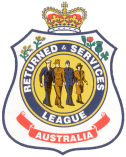
If you have a question that isn’t answered here, you can contact us for assistance via the enquiry form.
RSL NSW does not own or operate any registered clubs, nor does it own or operate poker machine licences. It does not benefit from the sale of alcohol or gambling.
The Art Union lottery is operated by RSL Queensland. Proceeds from the lottery support the delivery of services and support to veterans and their families.
RSL Queensland financially supports RSL NSW to implement the RSL NSW Strategic Plan 2021-2026 and improve outcomes for veterans and their families.
RSL Australia and other State Branches enter into partnerships with various commercial organisations. Refer to the RSL Australia website for details on any national partnerships.
RSL NSW is the recipient of all proceeds from badge sales in Woolworths stores across NSW.

The wattle is symbolic of Australia.
The leek, rose, thistle and shamrock represent the link with Wales, England, Scotland and Ireland respectively.
The badge is a symbol of a readiness at all time to render service to King and country, and to former comrades. It is a time-honoured emblem – one that has been worn with a deep sense of pride by the most revered in our land and one that glorifies the forms of dress of all privileged to wear it.
No wealth or influence can purchase the badge which may be worn only by those who have served their country.
The three colours in the badge have special significance:
- Red represents the blood tie of war.
- White stands for the purity of motive in joining the League – to render service without thought of personal gain or ambition.
- Blue indicates willingness to render that service to a comrade anywhere under the blue sky – wherever they may be.
Depicted in the centre of the badge, and encircled by the name of the organisation, a sailor, soldier, airman and servicewoman march together with their arms linked in friendship. This is to show that the circle of the League, all services and ranks march together in unity and comradeship.
The motto is: “The Price of Liberty is Eternal Vigilance”.
In the fourth century BC, the Greek military leader and Athenian Orator Demosthenes said in comment on the activities of the neighbouring kingdom of Philip of Macedonia:
“There is one safeguard known generally to the wise, which is an advantage and security to all, but especially to democracies as against despots. What is it? Distrust?”
Over 2000 years later, in 1790, John Philpot Curran said in his speech upon election as Lord Mayor of Dublin, Ireland:
“The condition upon which God hath given liberty to man is eternal vigilance.”
Some sixty years after this speech, Wendell Phillips said in an address before the Massachusetts Anti-Slavery Society in 1852:
“Eternal vigilance is the price of liberty.”
The words have also been attributed to Thomas Jefferson but no one has yet found any records of Jefferson using the sentence.
In the early 1920s the Victorian Branch of the League suggested that the League should have a motto and the New South Wales Branch subsequently recommended the phrase:
“The price of liberty is eternal vigilance.”
It is not known how RSL NSW came to suggest this motto, whether itadapted the historical quotes or whether it was an original idea. However, in November 1923, the 8th National Congress of the RSL agreed upon the motto as it now stands.
It is as relevant today as the spirit of the thoughts expressed by Demosthenes so long ago.